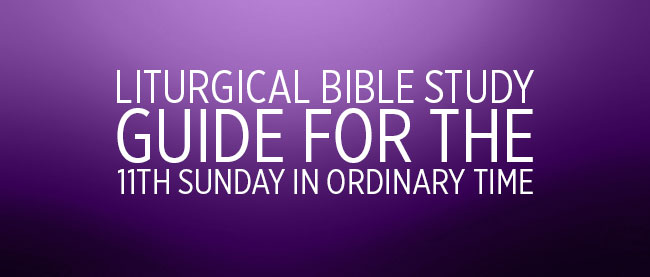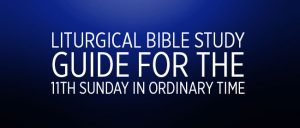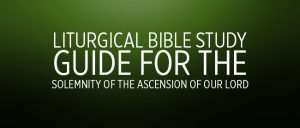1st Reading – 2 Samuel 12:7-10, 13
The books of Samuel have varied in name and shape throughout their existence. Originally, they formed one book, as attested to by Jerome and Eusebius. The partition into two books seems to have first been made in the Septuagint (the Greek translation of the Old Testament done around 250 B.C.) where these books are called 1 and 2 Kingdoms and what we now call 1 and 2 Kings were called 3 and 4 Kingdoms. The designation of 1 through 4 Kings carries through the Douay-Rheims translation (A.D. 1609-1610). Our Old Testament reading for today is about David’s adultery with Bathsheba. The prophet Nathan has just told the parable of the ewe lamb and David has risen to the bait. Nathan then confronts David with his sin and David’s ability to acknowledge his sin is a key point. One cannot really be forgiven until one has acknowledged the sinful act.
2nd Reading – Galatians 2:16, 19-21
At the beginning of his third apostolic journey, around the year A.D. 53 (Acts 18:23), Saint Paul passed through Galatia to visit the Christian communities he had established in the area (Acts 13:14ff). The communities in question, Pisidian Antioch, Iconium, Derbe and Lystra, were in the southern part of Galatia. The Galatians had responded very well to Paul’s apostolate and were flourishing when last visited by Paul (on his second apostolic journey) but this time he is very surprised to find that the Galatian Christians – many of whom came from a Gentile background – had been led astray by “false brethren”, Judaizers, who made out that Christians should conform to the Mosaic law and, therefore, should be circumcised and obey all the dietary regulations. When Saint Paul reached Ephesus he wrote the Galatians a letter refuting the errors involved, in which he goes into the whole question of the relationship between the Gospel and the Mosaic law, between the Old Covenant and the New. He tries to get them to see that the key point is this: accepting Mosaic doctrine would mean in practice renouncing the justification won for us by Christ – and therefore denying the value of the redemption; it would imply renouncing freedom, because they would be submitting to the yoke of the Law, which is slavery; it would mean rejecting the grace and salvation which faith in Jesus Christ brings with it. The Judaizers have ignored the decisions of the Council of Jerusalem (A.D. 50) which has gone into this whole question and with whose teaching Saint Paul is in line (Acts 15:28-29).
Gospel – Luke 7:36 – 8:3
Like our 1st reading, our Gospel reading for today focuses on repentance of sin. To be forgiven, sin must first be acknowledged. Then we must still live with the results of what we have done. Grace and forgiveness are powerful, but they do not come cheaply.





